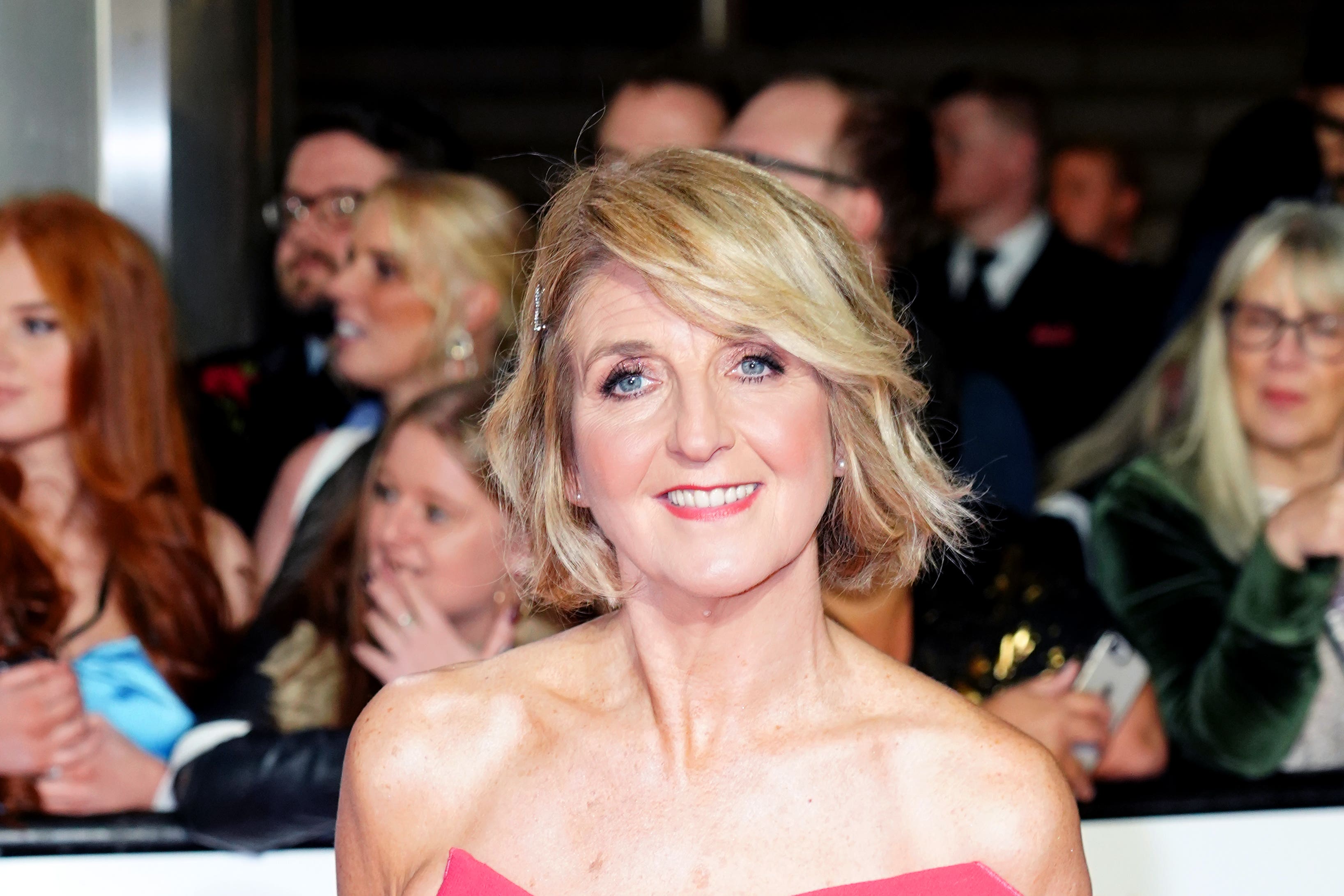Kaye Adams joins call for stroke survivor campaign
Campaigners will send their message to the Scottish Government on World Stroke Day on Saturday.

Your support helps us to tell the story
From reproductive rights to climate change to Big Tech, The Independent is on the ground when the story is developing. Whether it's investigating the financials of Elon Musk's pro-Trump PAC or producing our latest documentary, 'The A Word', which shines a light on the American women fighting for reproductive rights, we know how important it is to parse out the facts from the messaging.
At such a critical moment in US history, we need reporters on the ground. Your donation allows us to keep sending journalists to speak to both sides of the story.
The Independent is trusted by Americans across the entire political spectrum. And unlike many other quality news outlets, we choose not to lock Americans out of our reporting and analysis with paywalls. We believe quality journalism should be available to everyone, paid for by those who can afford it.
Your support makes all the difference.Broadcaster Kaye Adams has joined stroke survivors to demand the Scottish Government reintroduces a campaign that raises awareness of the most common signs of the medical condition.
The Loose Women panellist’s mother died following a series of strokes in 2018.
Ms Adams has since joined charity Chest, Heart and Stroke Scotland (CHSS) in its efforts to being back public awareness campaign Fast, which warns about the signs of a stroke and the need to take urgent action.
The Scottish TV presenter and campaigners will send their message to the Scottish Government on World Stroke Day on Saturday.
I’ll always regret not taking my mum straight to hospital when I saw a strange flicker across her face
Ms Adams said she regrets not taking her mother Cathie to hospital when she saw the signs of a Transient Ischaemic Attack, commonly known as a mini-stroke, two weeks before she suffered a major stroke in 2017.
Her mother received hospital treatment in Forth Valley before returning home to recover.
She continued to need care and support having been unable to regain her ability to walk when in July 2018 she had a second stroke and died a few weeks later.
Ms Adams said: “It’s so important that people recognise the signs of stroke and understanding they need to act fast.
“I’ll always regret not taking my mum straight to hospital when I saw a strange flicker across her face.
“She insisted she just needed a good night’s sleep but within a fortnight she had her first major stroke.
“Let’s make sure we don’t live with ‘if onlys’.”
When I saw some of the patients in the stroke ward, I realised how lucky I’d been
About 25 people a day will have a stroke in Scotland, according to CHSS.
The health charity said the medical condition is one of Scotland’s biggest killers and a leading cause of severe disability – with two thirds of stroke survivors leaving hospital with a disability, and one third giving up work as a result of their stroke.
Latest figures show 3,828 people died in Scotland as a result of having a stroke in 2021.
Ms Adams will be joining survivors, including Chris Forsyth, 57, from Livingston, who suffered a stroke in January this year.
Mr Forsyth claimed it was his wife Sharron’s quick response that meant he got the urgent medical attention he needed to survive.
Recalling his recovery, he said: “When I saw some of the patients in the stroke ward, I realised how lucky I’d been.
“I’m only now starting to accept what happened to me, and I class it as a brain injury.”
Fast is a simple acronym to help people recognise the most common signs and symptoms of stroke
CHSS said the Fast campaign has not run nationwide since before the pandemic.
Allan Cowie, CHSS’s interim chief executive it needs to be reintroduced to “increase recognition of stroke across the country, assist with early detection and help improve people’s recovery following a stroke.”
“By the end of today, 25 people across Scotland will have had a stroke,” he said.
“It is vital that people are aware of the signs and symptoms of stroke and phone 999 immediately if someone needs urgent medical attention.
“By getting help quickly, it not only increases people’s chance of survival but can help reduce disability.
“Fast is a simple acronym to help people recognise the most common signs and symptoms of stroke.
“We’re calling for the Scottish Government to reintroduce a national Fast campaign to increase recognition of stroke across the country, assist with early detection and help improve people’s recovery following a stroke.”
In response, a Scottish Government spokesperson said: “We are working with the National Advisory Committee for Stroke to improve how stroke care is delivered in Scotland.
“We published the committee’s Progressive Stroke Pathway in March 2022 and work is under way to consider how the recommendations will be prioritised and implemented, including consideration of new campaigns to raise awareness of strokes and Transient Ischaemic Attacks or ‘mini-strokes’.
“More information about the symptoms of stroke and what people should do if they see someone with FAST symptoms can be found online at nhsinform.scot.”
Fast stands for face, can the person smile, does one side of their face droop?; arm – can they lift both arms?; speech – is their speech slurred or muddled?; and time – if any one of these symptoms are present, call 999.